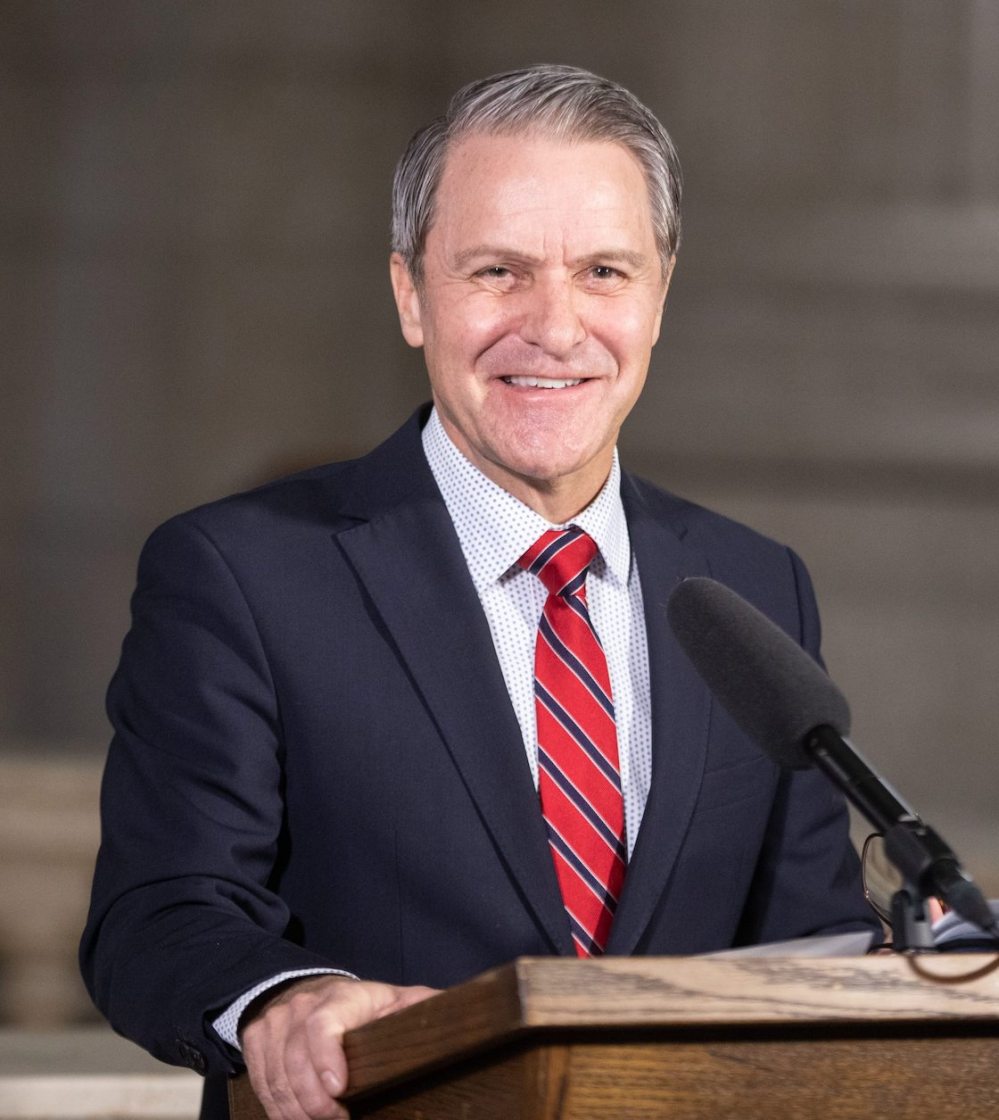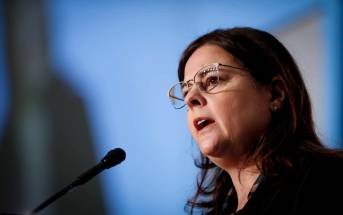Manitoba deficit set to shrink as economy and Crown energy utility rebound
Read this article for free:
or
Already have an account? Log in here »
To continue reading, please subscribe:
Monthly Digital Subscription
$0 for the first 4 weeks*
- Enjoy unlimited reading on winnipegfreepress.com
- Read the E-Edition, our digital replica newspaper
- Access News Break, our award-winning app
- Play interactive puzzles
*No charge for 4 weeks then price increases to the regular rate of $19.00 plus GST every four weeks. Offer available to new and qualified returning subscribers only. Cancel any time.
Monthly Digital Subscription
$4.75/week*
- Enjoy unlimited reading on winnipegfreepress.com
- Read the E-Edition, our digital replica newspaper
- Access News Break, our award-winning app
- Play interactive puzzles
*Billed as $19 plus GST every four weeks. Cancel any time.
To continue reading, please subscribe:
Add Free Press access to your Brandon Sun subscription for only an additional
$1 for the first 4 weeks*
*Your next subscription payment will increase by $1.00 and you will be charged $16.99 plus GST for four weeks. After four weeks, your payment will increase to $23.99 plus GST every four weeks.
Read unlimited articles for free today:
or
Already have an account? Log in here »
Hey there, time traveller!
This article was published 20/12/2022 (1084 days ago), so information in it may no longer be current.
WINNIPEG – The Manitoba government is forecasting a smaller deficit, hinting at more tax cuts, and eyeing new financial aid to help people deal with the rising cost of living.
A fiscal update from the Progressive Conservative government Tuesday forecasts a deficit of $193 million for the fiscal year that ends in March. That’s down from the $548 million predicted in last spring’s budget and the $202 million forecast in the last fiscal update in September.
JESSICA LEE / WINNIPEG FREE PRESS Manitoba Finance Minister Cameron Friesen.
Income and sales taxes are coming in well above projected levels, months after the province lifted COVID-19 restrictions on businesses and the economy rebounded. The other major factor is a turnaround at Manitoba Hydro, which lost money last year but is now looking at a big profit due to wet weather, higher water levels and more export sales.
The fiscal picture may brighten further next year, as the province is expecting equalization payments from the federal government to jump by more than a half-billion dollars. The jump is due largely to high resource prices in provinces to the west.
Finance Minister Cameron Friesen said the extra fiscal room could lead to more spending on health care. He also said there may be more measures to help people fight inflation.
“I would not rule out additional steps by this government in the new year to continue to respond on affordability,” Friesen said.
Friesen did not offer specifics and would not say if the new measures would be similar to cheques the government issued in August. The government sent cheques starting at $250 to Manitoba families with children at home and a household income of less than $175,000. Other cheques worth $300 went to seniors with less than $40,000 in annual family income,
“I would not rule out additional steps by this government in the new year to continue to respond on affordability.”–Finance Minister Cameron Friesen
Friesen also said there may be room to offer new tax breaks. The government set up a working group earlier this year to look at the province’s tax competitiveness with its findings expected to be revealed in the spring budget.
Manitoba has been recording deficits since 2009, with the exception of a small $5-million surplus in 2019. The government has promised to balance the budget by 2028. Friesen said the province is running ahead of its targets.
Tories urged to shift priorities
Manitoba has a chance to retool its spending priorities and re-evaluate tax breaks now that its financial picture has improved, the Canadian Centre for Policy Alternatives argues.
Manitoba has a chance to retool its spending priorities and re-evaluate tax breaks now that its financial picture has improved, the Canadian Centre for Policy Alternatives argues.
For example, education property tax rebates have taken $350 million away from program spending in this fiscal year, and will remove $453 million next year, said Manitoba director Molly McCracken.
“We have to question cutting taxes at this moment in time,” she said. “Right now, there are huge priorities in Manitoba of our populations in need.”
Manitoba reported Tuesday it forecasts a $193-million deficit for the fiscal year that ends March 31, 2023.
McCracken argued the government will be in a surplus position. In November, the think tank conducted a national analysis, based on first-quarter financial updates by the provinces, and determined Manitoba is inflating its deficit by including a $200-million risk fund, which is listed as “contingency,” on its balance sheet.
Finance officials may include a contingency, or risk fund, to account for uncertainty in the deficit. Its inclusion is not universal practise and used by four provinces, the think tank says.
McCracken said maintaining a deficit position gives the Tory government a rationale for fiscal restraint while spending on areas such as long term care, home care, and social assistance has languished over recent years.
“Manitoba actually does have resources to address poverty and income inequality, particularly when we know inflation of food and other things affects those living on provincial social assistance… the working poor and moderate families much more,” McCracken said.
“By pooling our resources in the public purse of the Manitoba government, we can have a bigger impact than giving tax cuts back to individuals,” she said.
— Danielle Da Silva
The Opposition New Democrats said money needs to go to hospitals that are struggling to deal with a surge in respiratory illnesses and address a shortage of nurses and doctors.
“I think like most Manitobans, when I hear that there’s more resources at the provincial level than expected, I’d like to see some investments in health care,” NDP Leader Wab Kinew said.
Kinew also said he supports the idea of some type of help for people struggling with rising rent, insurance and utilities, but did not offer specifics.
While the incoming equalization money is more than double this year’s deficit, Friesen would not commit to a balanced budget next year. He cited the predictions by some economists of a recession in Canada in 2023.
“We do not know what this is going to mean six months from now in terms of personal income tax, corporate income tax and PST (provincial sales tax).”
This report by The Canadian Press was first published Dec. 20, 2022








